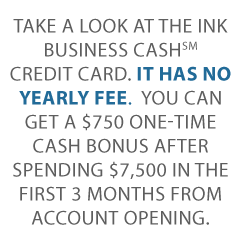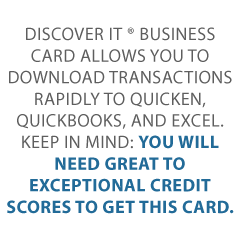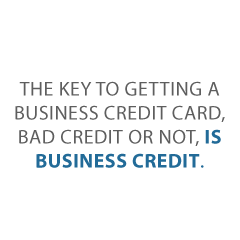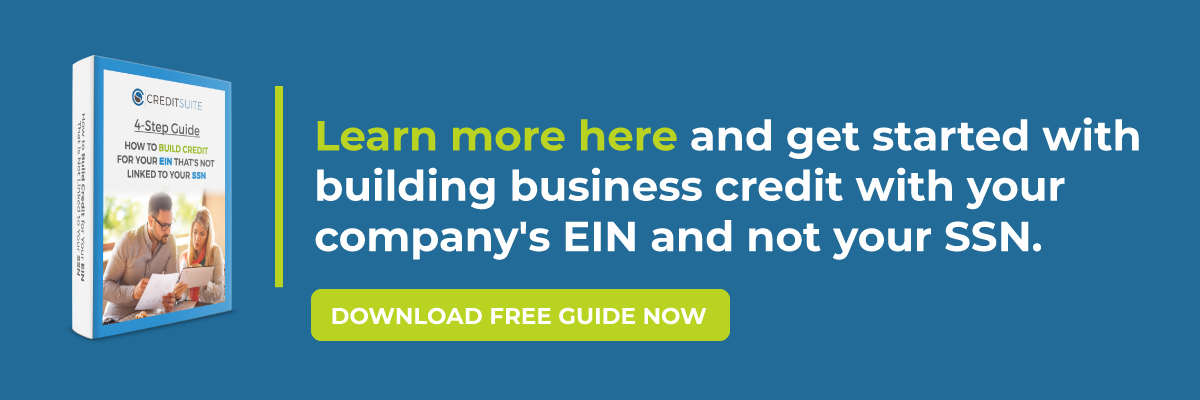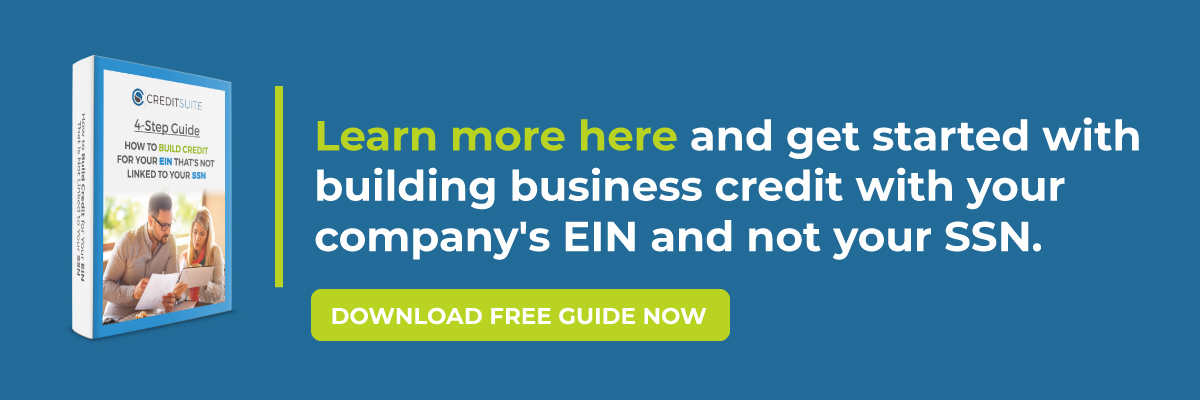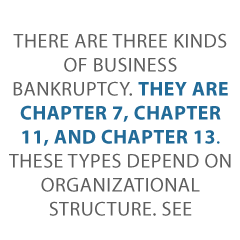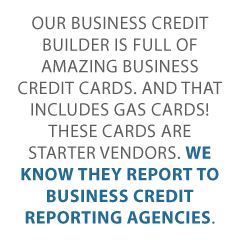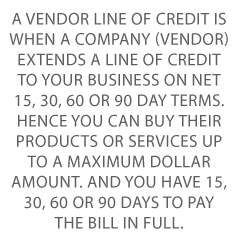
3 Ways to Build Business Credit
What are the Ways to Business Credit?
Business credit is credit you get in the name of a business. It does not attach to the business owner’s SSN. It is not dependent on the entrepreneur’s ability to pay debts. But it does depend on whether the business can pay its bills. Better business credit means your business can get more funding when it needs it, at better rates and terms than if you don’t work to build your business credit. Here are 3 ways to build business credit.
Business Credit is Not Automatic
You have to actively work to build it. Did you know over 9 out of every 10 vendors do not report to the business credit reporting agencies, Dun & Bradstreet, Experian, and Equifax? Therefore, except for requesting a trade reference, those nonreporting vendors don’t help you build business credit. So, what do you do? The following actions will help you no matter which method you use to build your company’s business credit.
Check Out Ways to Build Business Credit
Improving business credit scores means paying your bills on time. It also means paying with credit rather than cash when you can. This increases the number of accounts and purchases on your reports. And use the credit you already have regularly, so those accounts are not eventually closed due to inactivity.
A business starts building a brand-new credit profile much the same as a consumer does. Both start with no credit profile. The business gets approval for new credit reporting to the business credit reporting agencies. The business uses the credit and pays the bill timely. This establishes a positive business credit profile. As the business continues using credit and pays bills timely it will qualify for more credit.
Check out our best webinar with its trustworthy list of seven vendors to help you build business credit.
The First of 3 Ways to Build Business Credit: Vendor Accounts
One of the three ways to build business credit is with starter vendor accounts. These are companies which will approve your business with little fuss. A vendor line of credit is when a company (vendor) extends a line of credit to your business on Net 15, 30, 60 or 90 day terms. Hence you can buy their products or services up to a maximum dollar amount. And you have 15, 30, 60 or 90 days to pay the bill in full.
Since vendor accounts generally don’t ultimately come from a bank, like major credit cards (Visa, etc.) do, you can try to apply without using your Social Security number. Always apply first without using your SSN. Some vendors will request it and some will even tell you on the phone they must have it. But try to submit first without it.
Starter Vendors and D&B
When your first Net 30 account reports your tradeline to Dun & Bradstreet, the D-U-N-S system will automatically activate your file if it isn’t active already. This is also true for Experian and Equifax. Applying without your SSN means the vendor won’t pull your personal credit. As a result, you will be building business credit and not personal credit!
You need at least 3 vendor accounts reporting to move on. It can take a billing cycle to get your payment to show up in D&B’s system. Some vendors may want you to prepay or may have a minimal order requirement before they reporting to a business CRA. They may have minimal FICO score requirements as well. But you can often get around a minimum FICO requirement by working with a guarantor with good personal credit.
One of the Ways to Build Business Credit is to Go Beyond Starter Vendor Accounts
As you continue to prove yourself and your business, it becomes possible to qualify for revolving store credit. You can also qualify for fleet credit to buy fuel or repair and maintain vehicles. And you can even qualify for more universal cash credit from Visa and MasterCard and the like. So don’t stop with starter vendor accounts!
Check out our best webinar with its trustworthy list of seven vendors to help you build business credit.
The Second of 3 Ways to Build Business Credit: Our Credit Line Hybrid
You can get a line of credit for up to $150,000. This is no doc financing. Pay 0% for up to 18 months. It helps build business credit because your payments are reported. You must have a 680 or better FICO score. For more information, surf on over to my.creditsuite.com/qualifier-form.
This program works to help clients get funding based strictly on personal credit quality. Our lenders will not ask for financials, bank statements, business plans, resumes, or any of the other burdensome document requests which most conventional lenders demand.
Our lenders will review your credit report to ensure there are no derogatory items on it. To get approval, you shouldn’t have any open collections, late payments, tax liens, judgments, or the like on your report.
To qualify you should also have fewer than 5 inquiries on your credit report, within the last 6 months. You should have established credit. This includes open revolving accounts now reported on your credit report, with balances below 40% of your limits.
The Third of 3 Ways to Build Business Credit: Using the D&B CreditBuilder
Dun & Bradstreet has their own credit builder. It can help you get better business credit, but only with D&B. Dun & Bradstreet is huge, so concentrating just on them could be an effective strategy.
D&B offers advice for building business credit. A lot of it should be familiar. Their seven steps are to establish your business as a separate entity, register for a D-U-N-S number, get an EIN from the IRS, open a bank account for your business, make on-time payments, ask vendors to supply trade references to Dun & Bradstreet, and monitor your business credit scores and ratings.
Check out our best webinar with its trustworthy list of seven vendors to help you build business credit.
D&B’s CreditBuilder  Plus
Plus
CreditBuilder Plus is essentially a monitoring service exclusive to Dun & Bradstreet. One major advantage is getting a D-U-N-S number faster than most businesses do. You can use it to get alerts when others request your business credit report. And you can get a D-U-N-S Number and business credit file in 5 business days or less.
Plus you can get unlimited access to your D&B scores and ratings. And you can add 12 positive payment experiences to your business credit file and monitor your CreditBuilder account email address to know if it may have been compromised online.
3 Ways to Build Your Business Credit: Takeaways
Getting starter business credit means your business has more chances to get funding, and at the best terms and rates. Building business credit in any manner starts with fundability. Set up your business credibly to satisfy lender requirements. Working with starter vendors is a great way to get going. Starter vendors will approve you for lines of credit with little fuss.
Our credit line hybrid is the most excellent of these three ways to build business credit. Your payments are reported, and you won’t have to provide extensive documentation. Using the D&B CreditBuilder is another fine way to build your first business credit. One massive advantage to CreditBuilder is getting a D-U-N-S faster than other businesses.
But no matter which method(s) you choose, let’s take the next step together.
The post 3 Ways to Build Business Credit appeared first on Credit Suite.

